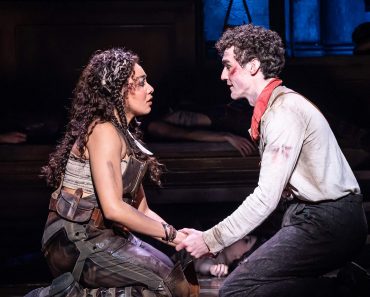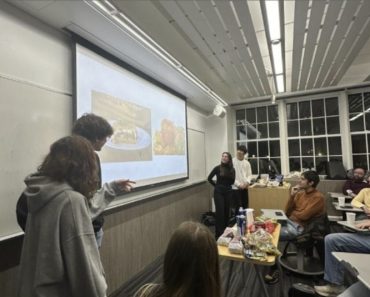‘And coming in from fifty metres, it’s Van Der Haar! Van Der Haar is going to chance it. Yes! Van Der Haar has kicked a goal! Ten points the margin…’
It was always impossible to obtain the requisite amount of quietitude that would facilitate the completion of Greek school homework on a Saturday. Football commentary emanating loudly from an old transistor radio in the garage would invariably meld with the sound of my father’s drill to form a melisma of distraction sufficient to render even the most earnest attempt to complete an essay, for example, fruitless.
‘Baba, how do you say overheard, in Greek?’
My father, not removing his gaze for a moment from the planks he was ritually disemboweling with a circular saw, would answer firstly: “αφουγκράζουμνα” and then when I would ask the follow up question, which language he was speaking he would shrug: ‘Dunno. Ask your mum.’
‘How about border-guard?’
‘I dunno. Ask your mum,’ my father would mutter, removing a fat builder’s pencil from behind a saw-dust covered ear, in order to scratch some runes on a piece of 2×4.
‘How about surveillance?’
‘What are you writing, a spy novel? Go and ask your mum!”
At a time when most of my friend’s parents could not speak English and where thus mercifully not privy to their offspring’s performance or lack thereof at school as evidenced by their monthly reports, my father was that rare thing, a crypto-Greek and thus, able to decipher all manner of codes pertaining to my lack of scholarly application. Arriving in Melbourne at the age of four, his only memory of his birthplace was being given a toy windmill by my grandmother when the ship that conveyed him to the Antipodean shores berthed in Kalamata. As such, quite apart from perennially being incapable of assisting me with my Greek-school homework, he displayed symptoms of non-Greek behaviour on a regular basis.
For one thing, whenever we were out in public, he would never speak in Greek. Holding my hand, his face contorted in an expression of absolute horror at my constant questions delivered at the top of my voice in the patois of his ancestral village, he would variously provide terse, monosyllabic responses in English, or ignore his interlocutor altogether.
Driving with the windows down while listening to Greek music in the car, one of my father’s greatest pleasures, also had its own arcane ritual. For whenever we pulled up at a traffic light, the second my father spotted another motor vehicle in close proximity, also with windows down, he would immediately either switch off the radio, or wind up the window. This ritual, which continues to the present day, has now been termed the ultra-fenestration of the Monaro, though the canary yellow Monaro in which it arose, has long been divested of my father’s mastery.
At the same time, my father was also a crypto-Aussie. Unlike my Greece-raised uncles who loved nothing more than to argue vociferously on such vital topics as whether ‘turbo,’ is properly pronounced ‘tourbo’ in English (they eventually all agreed that it was so), or which side should have won the Greek civil war, my father was content to sit out the discussions in silence, laconically delivering devastating one-liners, most often in English and always with the pursed lips of the true Australian, that were pitched high above my uncles’ egos in subtlety. For some unhellenic reason, he never saw the need to prove that he was right, or was indeed the font of all wisdom revealed and unrevealed. To all Greek-speakers that crossed his path including myself, this was disconcerting.
My father preferred beer to wine and was never to be found either at, or discussing the soccer. On Saturdays he watched the football and I dreaded summers, when he would watch test matches for days on end. In my late teens I attempted to explore the possibility of extending the father-son bond by way of jointly attending football matches, yet my propensity to ask him inane questions in Greek, cheer in the same language and make Mediterranean hand gestures at players whose skills I could not appreciate since I had no knowledge of the game, would make my father grimace in pain; thus my attempts were discontinued.
Though my father was an avid gardener, a skill that was over the years, passed on to me by way of compulsory re-education through labour, most years he neither had a κήπο, nor a μπαξέ. Instead, he betrayed an uncommon and, in his peer’s eyes, disturbing predilection for planting flowers and ornamental shrubbery and in the furtherance of this pursuit, would often consult Yates’ Garden Guide. The only redeeming feature of this activity was that over the years, one by one, he felled the significant number of eucalyptus trees that once grew on the family property, a powerful metaphor, if there ever was one, for re-hellenisation.
As my father worked, he constantly whistled or sang. His collection of contemporary Greek records was sizeable, comprising mostly but not limited to the Holy Tetrad of Yiorgos Dalaras, Yiannis Parios, Xaris Alexiou and Glykeria’s ‘Omorfi Nyxta,’ the only album in which both he and I know every single song by heart. Yet nestled beneath the Greek LPs underneath the record player were LPs by other artists that at least in my lifetime, have never been played by him: Little Richard, Simon and Garfunkel, Cat Stevens, Bob Dylan and Boney M. My discovery of these in my early teens, coupled with constant auditory repetition of the Holy Tetrad’s repertoire have formed the foundation of my musical aesthetic. Nonetheless, I know not the reason why my father abjured English-language music, though his steadfastness in doing so can be juxtaposed against the suppressed anguish he expressed when I once taped Maria Farantouri singing Yiannis Ritsos’ Lianotragouda over his ‘The Platters’ Greatest Hits’ tape when I was fifteen.
Since my father’s conversational Greek was limited in my childhood, comprising a smattering of village Greek phrases, we grew up learning Greek together. Endlessly inventive and possessed of the decidedly unhellenic disposition to engage in word-play, my father’s Greek utterances, augmented week by week as he listened to me trying to complete my Greek-school homework became linguistic tapestries of a true virtuoso. This was nowhere more evident than in his interpretation of Greek songs. Not always comprehending the lyrics, my father would replace them with words of his own. Thus, Kostas Smokovitis’ Θα τον τρελάνουμε τον ήλιο, as adapted by my father, became Θα κατουρήσουμε τον ήλιο, in which form, I took it upon myself to perform for my Greek school class one year, fully convinced that this was the true and original version. My Greek-school teacher, who was an overly passionate supporter of the Greek Socialist Party, for whom this was the theme song, disabused me of my misapprehension, by way of corporal punishment. My father’s only response, when blame was ascribed to him for my predicament, was to remark drily that being persecuted for one’s political beliefs was un-Australian.
Despite friends and family terming my father an Aussie, he seldom socialised or mixed with Anglo-Australians outside work. On the odd occasion when I brought home an ‘Australian,’ friend, I would feel an almost imperceptible feeling of unease emanating from the frequency of his power tools, noisily making his presence manifest in the garage. When he did finally emerge, he displayed an uncharacteristic reluctance to discuss the footy. One friend, perceiving a neglected tarnished trophy on my father’s bookshelf one day remarked: ‘Wow, your dad was a Lacrosse champion for Essendon Technical School.’ When I asked my father, in my friend’s presence, how it was that he came to embrace such an exotic sport and why indeed he had never mentioned it before (I had never noticed the trophy), he merely shrugged and dismissed me laconically, for the first time ever, in Greek: «χαζομάρες.»
I was too shocked to seek further clarification, save that my father looked at my mother in a knowing fashion the next day, when I returned home to report that my friend, who had been the recipient of my family’s hospitality and whom my father had driven home, had come to school telling all and sundry that the furniture in our home was ‘so woggy,’ and that our front yard was ‘full of concrete,’ a manifest lie. ‘I told you, they never change,’ my father whispered, believing he was out of earshot.
Years later, my father and I were walking to our local polling booth on election day. ‘Who do you think we should vote for?’ I asked him in Greek. Even before I could sense his lips tighten for the inevitable response in English, the crusty drawl of an old man cut in: ‘Hey you, we speak English in Australia.’
My father swirled around. In the nano-seconds he took to respond, as he confessed to me later, a multitude of deeply embedded and hitherto unrevealed memories assailed his consciousness: being kicked off the tram by the conductor for speaking Greek in the fifties, dealing with teachers and classmates who constantly denigrated his ethnicity and surname, abiding with snide comments and subtle racial slurs throughout his career, such as being asked to provide quotes for services in drachmas and of course, listening to his team-members in Lacrosse, the sport he loved more at that time than anything else, sanctimoniously exclaim: ‘Those frigging Greeks, oh, but you’re alright,’ and then dump him from the team. Then there was the mystifying experience of seeing my father being approached in the supermarket by a strange lady who looked at him through squinty eyes and then exclaimed: “I know you, you’re Pill aren’t you?” “No, I’m not. You’ve made a mistake,” my father replied before shuffling away. It was only now that he was able to reveal that all ‘wogs’ were referred to as ‘Pill,’ at his school, as it was common knowledge that wogs were ‘hard to take.’
When the riposte came, it was by means of a phrase enunciated through the pursed lips of the true Australian, short, solecistical, and it sent the old man away reeling: «Δεν πας να γεμιστείς, κωλόγερε.» With tears in my eyes I embraced him. ‘Dad,’ I exclaimed. ‘You ‘ve finally come out. I’m so proud of you.’ Public displays of physical affection are also old-school, un-Australian. «Άσε με, βρε,» he responded, simultaneously pushing me and the person handing out how to vote cards for the Australian Greens out of his way. ‘We’ve already had enough ρεζιλίκια for one day.’







